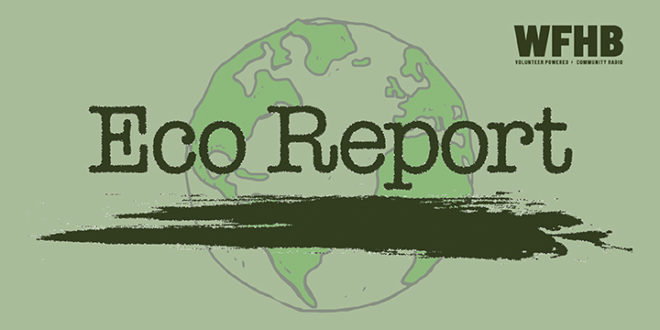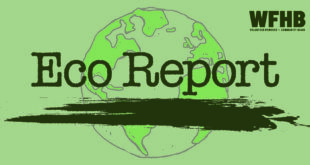Podcast: Play in new window | Download (Duration: 29:00 — 20.9MB)
Subscribe: RSS
The US District Court for the District of Columbia ordered the company Energy Transfer to shutter and empty the Dakota Access Pipeline, the largest pipeline transporting oil from North Dakota to Midwest and Gulf Coast refineries. The court gave Energy Transfer thirty days to make the changes.
Recently we reported that the long battle to stop the Atlantic Coast Pipeline was coming to a head. As of July 5, the project is dead, and environmentalists, indigenous people, environmental justice activists and other opponents of the pipeline are celebrating.
Decision time is near on the proposed Pebble Mine in Alaska. The biggest red salmon run in the world is building at Bristol Bay. Fishermen will soon learn if a massive gold and copper mine that’s been hanging over their heads for two decades gets a green light from the federal government.
On June 25, District of Columbia Attorney General Karl A. Racine filed the lawsuit against the world’s four largest oil companies—BP, Chevron, ExxonMobil and Shell. The lawsuit alleges that the companies are “systematically and intentionally misleading District consumers about the role their products play in causing climate change.”
According to the Washington Post, U.S. House Democrats unveiled a sweeping climate change plan that includes requiring utilities to reach net-zero greenhouse gas emissions by 2040 and automakers to produce only electric vehicles by 2035.
Two separate studies presented at the Goldschmidt geochemistry conference found mercury in fish and crustaceans living thirty-six thousand feet under the sea in the Mariana Trench.
Pacific Gas and Electric, or PG&E, a utility company and state monopoly that’s exclusively responsible for providing energy to California, caused the Camp Fire in that state because of a faulty transmission line. The fire destroyed the town of Paradise and killed 84 people. In court the company was found guilty of 84 counts of involuntary manslaughter and one of unlawfully starting a fire.
The giant German chemical and pharmaceutical manufacturer Bayer AG bought Monsanto, the massive biotechnology company, two years ago for $63 billion. Recently Bayer agreed to pay over $10 billion to settle some 95,000 lawsuits claiming that Monsano’s flagship product, the herbicide Roundup, causes cancer. Plaintiffs have filed almost 125 lawsuits claiming that their non-Hodgkin’s lymphoma resulted from repeated expoure to Roundup’s active ingredient, glyphosate. In areeing to the settlement, Bayer doesn’t have to admit liability or wrongdoing. Not long after the settlement, U-S District Judge William Shubb ruled that the state of California is permanently prohibited from placing a cancer warning on the label of Roundup because he decided that “the great weight of evidence indicates that glyphosate is not known to cauce cancer.”
 WFHB Bloomington Community Radio
WFHB Bloomington Community Radio


